May 21, 2025 | 18:04 GMT +7
May 21, 2025 | 18:04 GMT +7
Hotline: 0913.378.918
May 21, 2025 | 18:04 GMT +7
Hotline: 0913.378.918
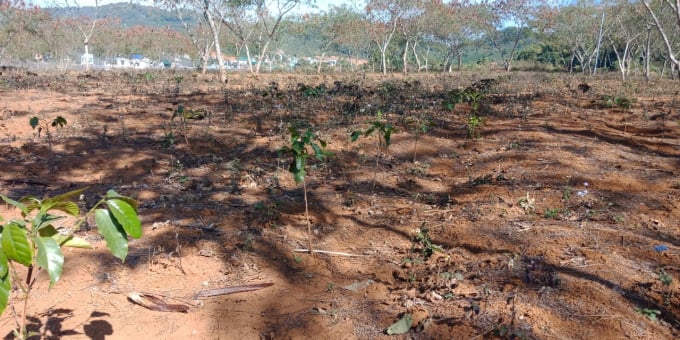
Planted on degraded land, coffee trees grow slowly. Photo: Truong Hong.
Degraded land is the land that has lost some degree of its natural productivity due to natural and human factors. Researchers have put degraded land in the Central Highlands into 4 levels: Non or mildly degraded land: 1.84 million ha (accounting for 33.7%); degraded land: 2.5 million ha (accounting for 45.8%); severely degraded land: 1,123 million ha (accounting for 20.5%).
Land degradation results in the reduction of fertility, which is reflected in signs such as tight soil, strong acidity, poor ability to keep moisture, and poor nutrition; low fertilizer use efficiency; harmful microorganisms; pests and diseases... which lower the efficiency of agricultural production and go against the goal of sustainable agricultural development of the region.
There are many reasons why the land in the Central Highlands has been degraded, but mostly, it is the human-caused processes that are to blame.
The Central Highlands is specialized in growing coffee and pepper, accounting for 88% and 63% of Vietnam’s coffee and pepper cultivation respectively. The area of coffee and pepper increased uncontrollably during periods of high prices, even on inappropriate land types and terrain, disrupting the balance of the ecosystem. After long periods of monoculture, the soil degenerated, leading to poor production and low and uncertain crop yields.
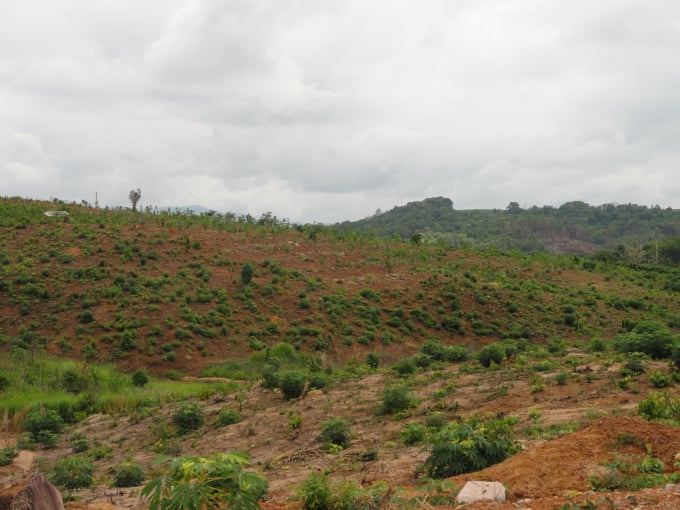
Over 1.1 million hectares of agricultural land in the Central Highlands are severely degraded. Photo: Truong Hong.
This is the most common cause of land degradation in the Central Highlands. Due to their immediate effects, chemical fertilizers are favored by farmers in order to achieve high productivity and high income. Up to 60% of coffee growers and 45% of pepper growers use fertilizers inappropriately, 70% apply chemical fertilizers at much higher doses than recommended and compared with targeted productivity. The amount of nitrogen fertilizer applied by farmers is usually very high, sometimes 300% higher than recommended; the amount of phosphorus 50 - 200%; potassium fertilizers are mostly lower than recommended; especially when the price of coffee and pepper is high, up to 90-100% of farmers apply higher chemical fertilizers with the desire to achieve maximum productivity and income. The percentage of farmers interested in organic fertilizers is still low, only about 40%.
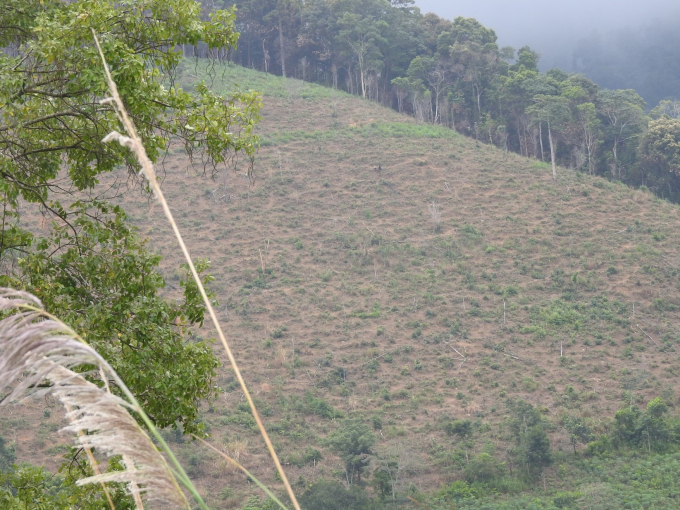
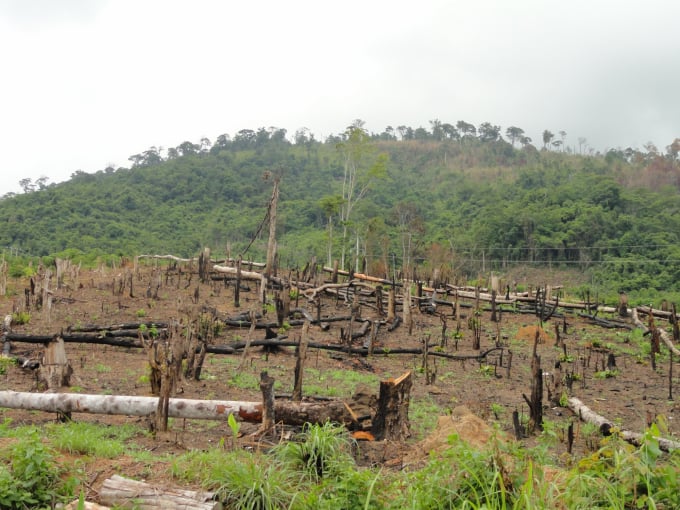
The forest was cut down for cultivated land.
Deforestation for cultivated land is easily seen in remote areas and ethnic minorities, sometimes along the main roads; especially when the prices of certain crops were at high level, typically coffee in the 1990s or pepper in the years 2014 - 2016. The forest was cut down and there were no or poor protective vegetation cover, so the soil quickly lost its fertility, organic matters burned, the soil was gradually eroded. The rate of land degradation is proportional to the extent of land cover, precipitation, and slope of the soil. Every year, the Central Highlands loses an amount of about 167 million tons of land. On average, one hectare of natural land loses nearly 29.7 tons/year.
In addition, deforestation has contributed to increasing the speed of climate change. Extreme weather phenomena (droughts, rain, floods ...) occurring with a thicker frequency also contribute to speed up the degradation of agricultural land in the Central Highlands.
Given all of the above information, it can be seen that land degradation in the Central Highlands has been spreading rapidly and severely.
Therefore, it is of our concerns that the area of degraded agricultural land is increasing due to the severe physical, chemical and biological changes of the land, which is difficult or impossible to recover in short-term without an overall strategy and drastic action to restore degraded land in the Central Highlands.
Author: Dr. Truong Hong. Translated by Meagan Phan. Edited by Duc Huy.
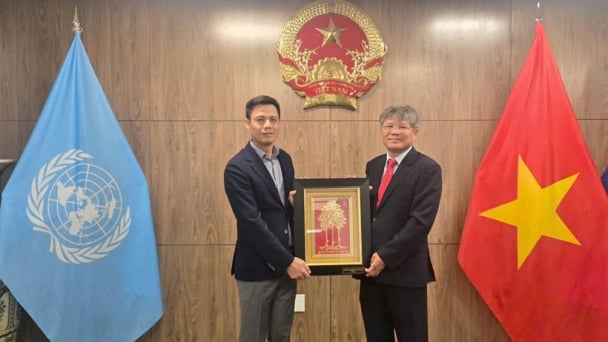
(VAN) VRG recently conducted a visit and working trip to the United States to demonstrate its efforts in redefining the role of rubber enterprises in the global value chain.

(VAN) In 2024, over 295 million people across 53 countries and territories faced acute hunger—an increase of almost 14 million people compared to 2023, while the number of people facing catastrophic levels of hunger reached a record high.

(VAN) World Environment Day 2025 (June 5) carries the theme 'Beat Plastic Pollution' continuing to emphasize the global urgency of addressing the plastic waste crisis.

(VAN) This was the assessment shared by experts at the workshop titled 'Assessing the Role and Potential of Low-Emission Rice Production Systems in Vietnam,' held on the morning of May 19.

(VAN) Cai Rong Port is the fisheries control center of Quang Ninh, helping to monitor fishing vessels, combat IUU fishing, and remove the EC's 'yellow card'.

(VAN) The German Agricultural Society (DLG) explores the possibility of establishing a mechanization service center in Vietnam’s Mekong Delta to support farmers in accessing and utilizing advanced machinery.

(VAN) On May 16, the Department of Water Resources Management, in collaboration with the Food and Agriculture Organization of the United Nations (FAO), held a signing ceremony for the GEF-8 project document.